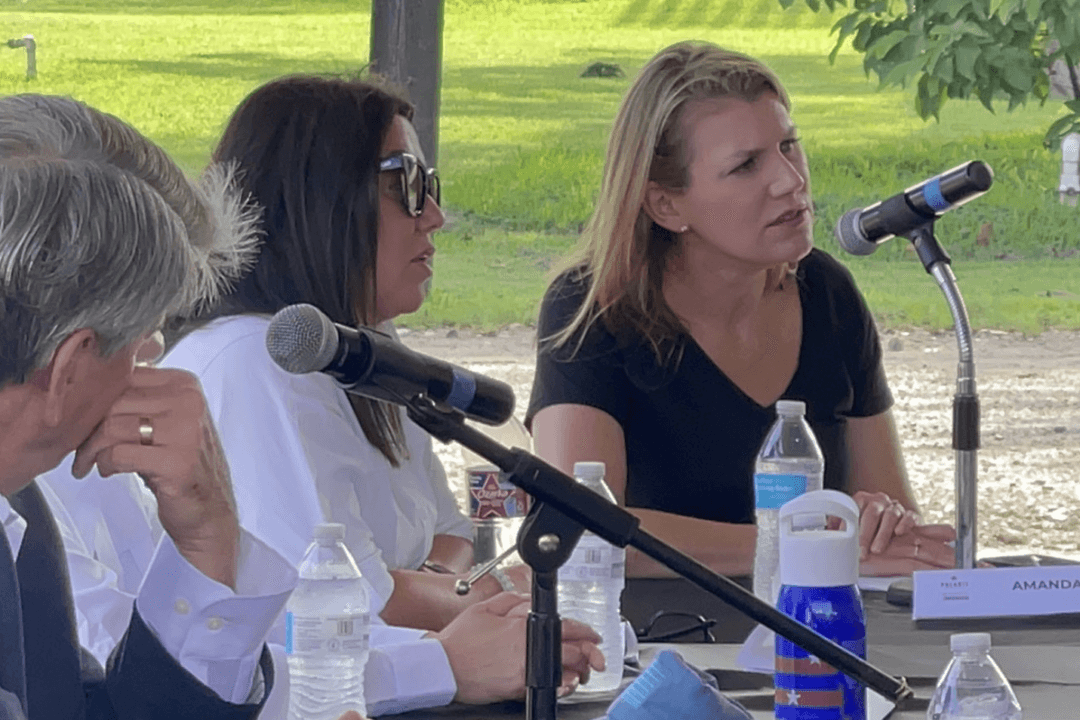More than 900,000 Kansans voted in a special election on Aug. 2 and nearly 60 percent of them rejected a proposed amendment removing abortion access as a fundamental right from the state’s constitution.
The Kansas special election was the first public referendum on abortion following June’s U.S. Supreme Court repeal of Roe v. Wade, which returned regulation of the procedure back to states.
The Aug. 2 turnout, the largest ever for a Kansas primary, and result—a shocking red state upset—galvanized Democrat voters nationwide, brightening the party’s once-bleak prospects of retaining the U.S. House and taking the U.S. Senate in November’s midterm elections.
Suddenly, after decades of being on the defensive in shielding abortion rights, Democrats are seizing the offensive, campaigning under the mantle of individual rights, borrowing a plank from Republicans’ traditional platforms.
None are doing so more so than Kansas’ lone Democratic House member, who is hoping a post-Roe bump can overcome blue-to-purple redistricting and ambient angst with her party to win a “toss-up” rematch with a familiar opponent.
All four Kansas congressional reps are incumbents running in 2022 with three—all Republicans—projected to convincingly win new two-year terms in November.
The exception: Rep. Sharice Davids (D-Kansas), who is running for reelection in a revamped Kansas Congressional District 3 (CD 3).





